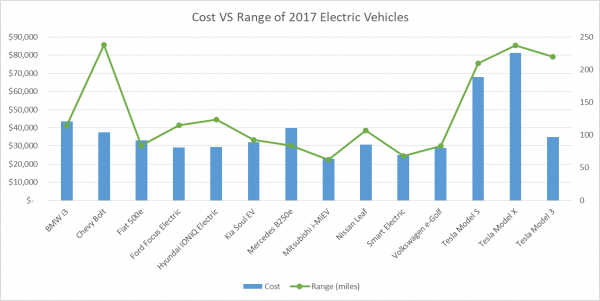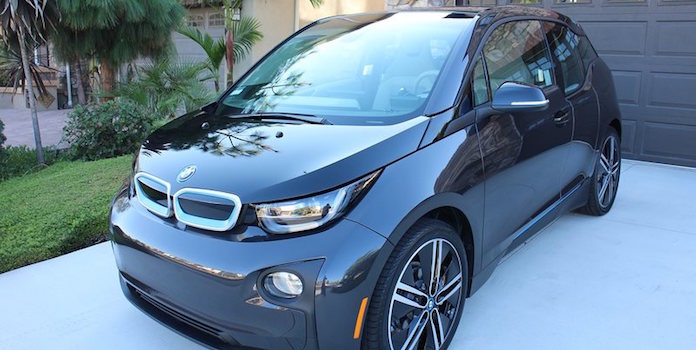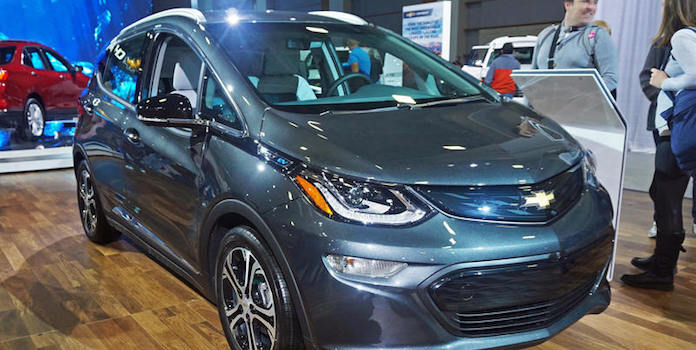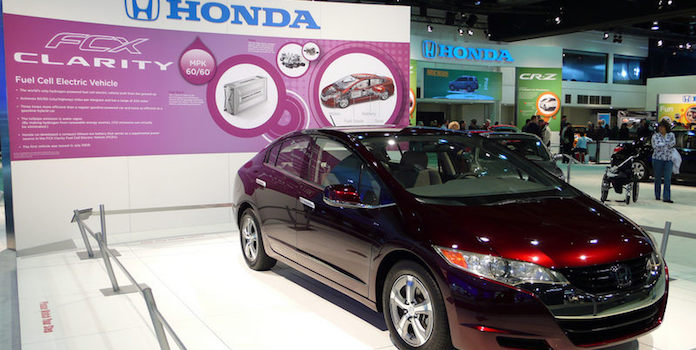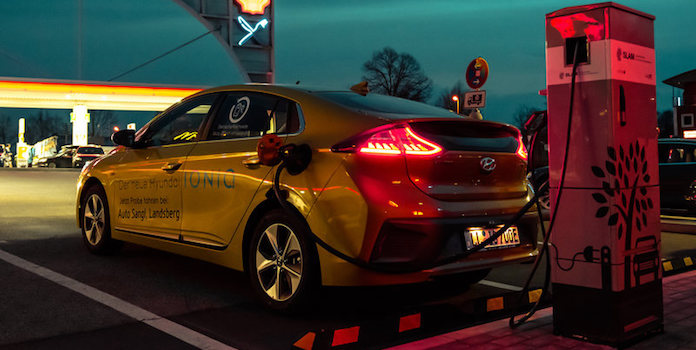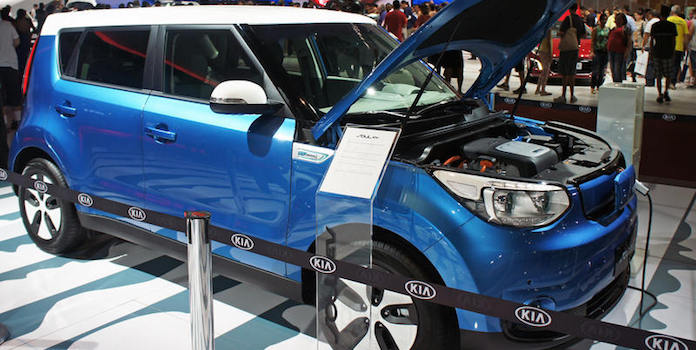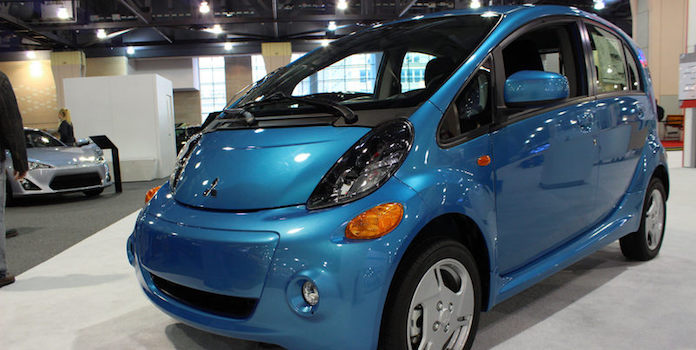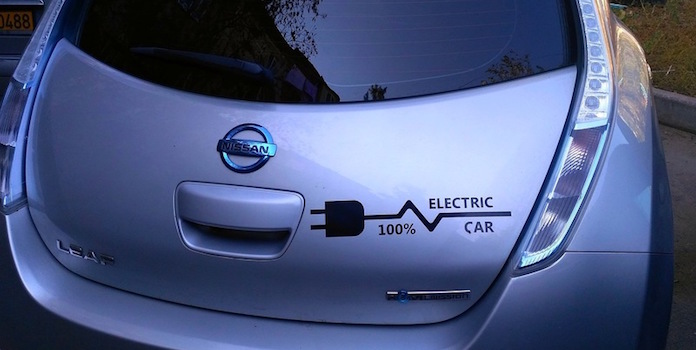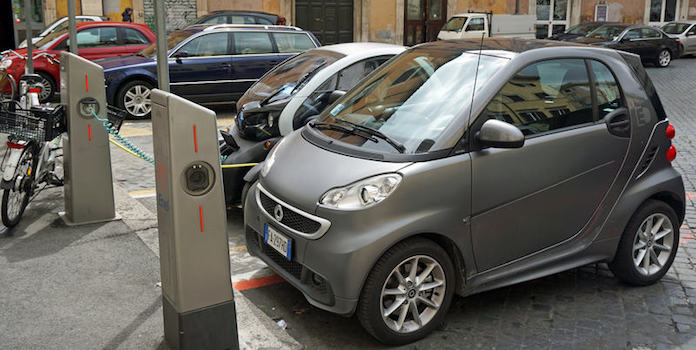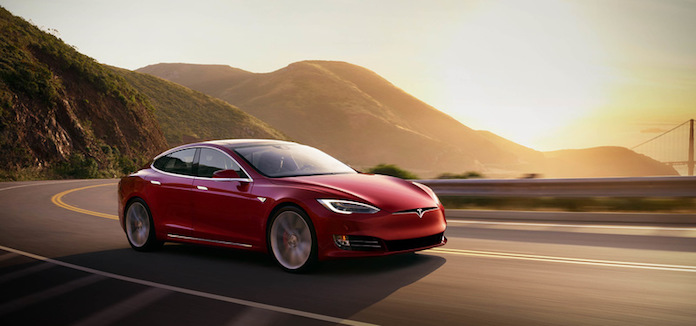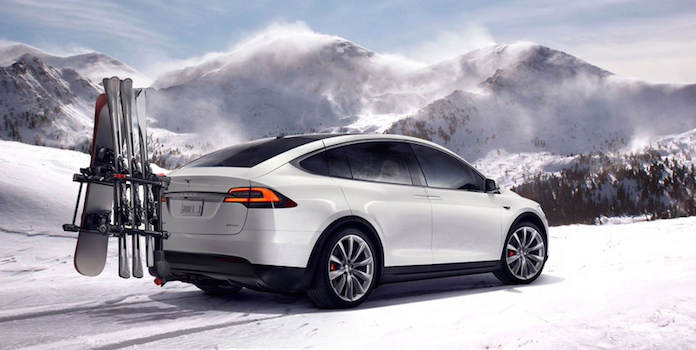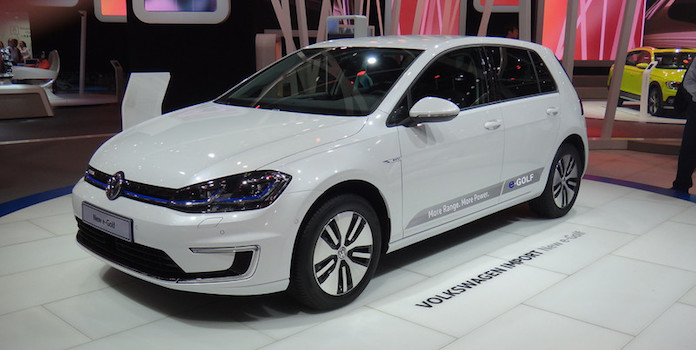The Rundown on 2017 Electric Car Costs
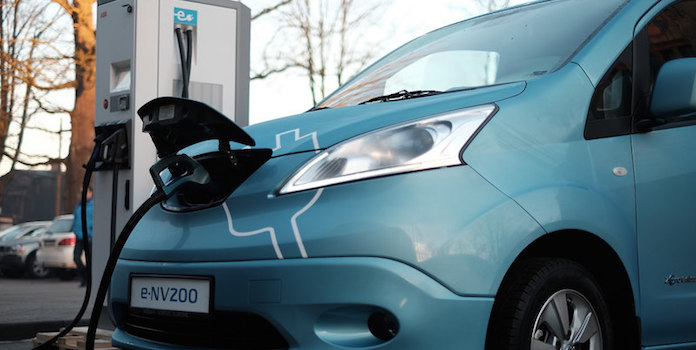
Comparing the range and cost of EVs currently available
Electric vehicles (EVs) were once an oddity on the roads, but now we see them drive by with regular frequency. The numbers confirm this: sales of EVs are on the rise, jumping 37% from 2015 to 2016 in the US. If you are keen to hop on the bandwagon, your first question may be, “What does an electric car cost?”
We’ve got the the answer to that question and more. Outlined below is a rundown on all the EVs available in 2017, highlighting each car’s availability, maximum range, and efficiency, with a focus on electric car costs and value.
There’s a wide range of options to choose from, as EVs run the gamut from a low of $23,000 to upwards of $140,000 for higher end Teslas. Most, though, sit comfortably between $30k and $40k.
Of course, you generally get what you pay for. As your costs increase, you get more pampering, greater range, and better get-up-and-go.
While some companies, like Chevy, Nissan, and Tesla, have wholeheartedly jumped on the EV bandwagon, producing some truly amazing EVs for good prices, other companies (like Fiat) still aren’t convinced. They produce an extremely limited number of EVs, typically to comply with California’s auto regulation requiring auto manufacturers to sell EVs if they want to continue operating in the state.
Before we go any further, let’s be clear: we are only focusing on fully electric vehicles on this list. Popular EVs in this category include Tesla’s full line and the Nissan LEAF. Plug-in hybrids like the Toyota Prius (Plug-in version) and the Chevy Spark are not covered.
General overview of what an electric car cost
To help you decide which EV is the best value, we created the chart below to easily compare each EV’s cost and range (in miles). The blue bars represent cost and the green line is range.
Obviously, there are many different components to consider when evaluating an EV – acceleration, comfort, and seating to name a few – but we chose these two as the most important considerations both for EV manufacturers and buyers.
We all want the most bang for our buck, so in the chart below we’re looking for a big gap between a car’s blue bar (cost) and green line (range), denoting a low price but high range.
As you can see, range generally follows cost: as the first increases, so does the other. However, there are a few EVs with gaps between the two. The Ford Focus Electric, Nissan Leaf, and Hyundai IONIQ all offer a good range for the cost, but there are two recent additions to the EV market that really stand out. The Chevy Bolt and the Tesla Model 3 both pack an incredible 225+ mile range into a car that is about the same price as the others.
Both of these were introduced in 2017 and, we believe, represent the promising future of EVs: good range at a good price.
Keep in mind that these are the list prices for each of these cars. The federal government offers a tax credit up to $7,500 for many EVs and your state and/or city can also offer tax credits, rebates, or other perks (like driving in the express lane for free, for example) for EVs. Be sure to check what’s available to you!
Now let’s take a look at the 14 cars in the graph above to see what else they offer. FYI, the following list is alphabetical, and figures are current as of September 2017.
BMW i3
- Availability: Nationwide
- Efficiency: 118 MPGe
- Range: 114 miles
- Seating: 4 seats
- 0 to 60: 7.2 seconds
- Cost: $44,450
Unique design. Carbon-fiber body. Decently quick. The BMW i3 is just cool. If you’re looking for German engineering in a far-out style, the i3 might be the option for you.
Of course, you’ll be paying a premium for the BMW logo. The i3 costs around $7k to $13k more than other EVs out there, but enjoys only a slightly-above-average 114 miles of range. Range obviously isn’t the only thing to look at though. This car’s got sweet looks and is pretty speedy. But then again, you could get the Chevy Bolt below, with an extra 100 miles of range, and an extra $6k in your pocket! It’s up to you what the BMW tag is worth.
Chevy Bolt
- Availability: Nationwide
- Efficiency: 119 MPGe
- Range: 238 miles
- Seating: 5 seats
- 0 to 60: 6.5 seconds
- Cost: $37,495
Efficient, quick, and with a huge range capacity, Chevy’s putting big money on their new Bolt, and people are taking notice. While it costs quite a bit more than the Nissan LEAF (currently the most popular EV on the market), it also packs a walloping 238 miles per charge, blowing any car on this list – beyond Tesla – out of the water.
Introduced in late 2016, the Bolt is Chevy’s replacement for their original EV, the Spark EV, a compliance car so Chevy could continue operating in California. To keep costs reasonable, Chevy opted to keep the Bolt small in size, but with lots of battery for decent range. People seem to be responding favorably, and Bolt sales in 2017 are set to beat out every EV on the market besides Tesla.
Fiat 500e
- Availability: Limited (California)
- Efficiency: 121 MPGe
- Range: 84 miles
- Seating: 4 seats
- 0 to 60: 8.7 seconds
- Cost: $32,995
We’ve all seen those little Fiat 500s roaming around the city, but did you know there’s an all-electric version as well? At 121 MPGe, the EV version enjoys good efficiency, but pretty low range when compared to the Chevy Bolt above (though not so bad when compared to most of the other cars on this list). Your seating is also limited to 4 seats, but it’s a small car so it’s probably a blast to drive!
We already mentioned that Fiat produced the 500e as a compliance car and in fact, back in 2014 the CEO of Fiat urged drivers not to purchase the 500e as the company actually loses about $14k on each sale – even at the relatively high price point for its size and range.
If you’re looking to not only drive an EV but support an environmentally-conscious company as well, you might want to look elsewhere. In the meantime, the Fiat 500e is actually seeing great reviews, so you wouldn’t be going wrong if all you want is a solid EV.
Ford Focus Electric
- Availability: Limited
- Efficiency: 118 MPGe
- Range: 115 miles
- Seating: 5 seats
- 0 to 60: 10.1 seconds
- Cost: $29,120
If you’re the person that hides the logo of your expensive jeans, check out the Ford Focus Electric. It’s got an SUV/hatchback flair like the Tesla Model X and BMW i3, but without all the crazy upgrades. With its everyday style, the Focus Electric is a good option for people that want to fly under the radar.
At 115 miles of range, the Focus Electric actually fares pretty well compared to other models, especially at its low price. You’re not going to take any road trips, but like we keep mentioning you really can’t with any of these cars except the Chevy Bolt and Teslas.
At $29k, the Focus Electric is actually cheaper than most other cars on this list. Keep in mind, though, that for just $7k more, you can buy the Bolt, which has about double the range. Still, if you come from a Ford family and your grandpa would disown you if you bought a Chevy, the Ford’s a solid bet.
Honda Clarity Electric
- Availability: Limited (California and Oregon, lease only)
- Efficiency: 126 MPGe
- Range: 89 miles
- Seating: 5 passengers
- 0 to 60: 8.1 seconds
- Cost: Lease only
The Clarity comes in a traditional gas-powered version, electric version, and – very excitingly – a hydrogen fuel cell version (shown above). Unfortunately, the electric version is only available in California and Oregon via leases, though the hybrid will be available nationwide in the future.
Hyundai IONIQ Electric
- Availability: Limited (currently only in California)
- Efficiency: 136 MPGe (the highest efficiency of any EV!)
- Range: 124 miles
- Seating: 5 seats
- Cost: $29,500
While only available in California currently, Hyundai is set to introduce the car nationwide in the future. The IONIQ is one of the few cars on our list where you actually get more than you pay for: low price and higher range.
Looking at the graph at the top of this article, along with the Nissan LEAF and Ford Focus Electric, the IONIQ creates that ‘middle ground’ between the ‘get what you pay for’ and the ultra-high cost-effectiveness of the Chevy Bolt and Telsa Model 3.
At 136MPGe, the IONIQ is actually the most efficient EV currently being produced – so props to Hyundai for making that happen. As long as you’re okay with a Hyundai, the IONIQ gives you good bang for your buck.
Kia Soul EV
- Availability: Limited
- Efficiency: 105 MPGe
- Range: 93 miles
- Seating: 5 seats
- 0 to 60: 11.8 seconds
- Cost: $32,250
Well, it’s a Kia Soul. We’ve all seen those boxy little machines. You either like them or you don’t. $32k actually seems a bit high for what you get – a range of 93 miles, fairly slow acceleration, and a hamster in the backseat (those come with the car, right?)
When the Soul EV was introduced in 2015, its range was actually considered quite good – 2nd only to Tesla – but today as EVs progress at lightning speed, the Soul is being left in the dust. Thankfully, Kia has responded by upgrading the battery pack for the 2018 model, increasing the range to about 110 miles.
While a far cry from the higher end of the spectrum, it’s good to see Kia actively working on its EVs and it certainly bodes well for them in the future.
Mercedes B250e
- Availability: Limited
- Efficiency: 82 MPGe
- Range: 84 miles
- Seating: 5 seats
- 0 to 60: 7.9 seconds
- Cost: $39,900
This is Mercedes’ compliance car for the California market, but they really don’t even try to sell this thing. At $40k, it’s a similar price point to the BMW i3 and Chevy Bolt, but without the range of the Chevy or the excited support of EV-pushing BMW. Throw on top of this the B250e’s low efficiency of 84MPGe – similar to Tesla’s but without the power – and this car’s seeming pretty superfluous.
If you want an EV but must drive a Mercedes, this is your only option — but there are better cars out there for a cheaper price.
Mitsubishi i-MiEV
- Availability: Nationwide, but good luck finding one
- Efficiency: 112 MPGe
- Range: 62 miles
- Seating: 4 seats
- 0 to 60: 13.5 seconds
- Cost: $22,995
The i-MiEV is the cheapest EV on our list, so if you’re looking to go electric at the lowest possible cost, take a look here. At about 60% less than competitor costs, you get a bare bone, but not terrible, EV. Good efficiency, decent seating, but with just a 62-mile range and sluggish acceleration.
If you’re looking for a budget car to drive back and forth from work and to the grocery store, the i-MiEV is a solid option – just don’t expect to get back home after going to see your grandma in the next town over.
Nissan LEAF
- Availability: Nationwide
- Efficiency: 114 MPGe
- Range: 107 miles
- Seating: 5 seats
- 0 to 60: 10.2 seconds
- Cost: $30,680
There’s a reason the Nissan LEAF is the best-selling electric car ever produced. It’s comfortable, decently fast, efficient, and affordable. However, with its once-good range of 107 miles, it’s time for Nissan to upgrade so it can continue to compete with the Chevy Bolt.
As if on cue, Nissan is currently upgrading the batteries to achieve a 150 mile range – still well below the Chevy and Teslas – but still about $7k cheaper as well. With this update, the LEAF shines as an awesome deal, with 40 to 70 more miles of range than many other EVs with similar, or even higher, prices.
While competition is getting stiffer as more auto manufacturers join the EV race, we predict Nissan will continue to hold its own with the Leaf. And as an EV, you can’t go wrong with the time-tested LEAF.
smart Electric
- Availability: Limited
- Efficiency: 107 MPGe
- Range: 68 miles
- Seating: 2 seats
- 0 to 60: 9.8 seconds
- Cost: $25,000
The smart Electric is $25k, or $19,900 if you pay $80/month to rent the batteries. While it’s on the lower side in terms of cost, you get less than 70 miles in range and only 2 seats (which is kind of the point of smart cars though, right?)
One bonus: with the small size and low range, the smart Electric only takes about 3 hours to fully charge with a 240-volt charger – pretty awesome. It’s hard to justify paying that amount, however, when you can get a similar range and 2 additional seats with the Mitsubishi I-MiEV for even less money.
Tesla Model S
- Availability: Nationwide
- Efficiency: 98 MPGe (higher with upgrades)
- Range: 210 (higher with upgrades)
- Seating: 5 (7 with optional kids seat in back)
- 0 to 60: 2.5 seconds
- Cost: $68,000
We all know Tesla and its electric cars, so what’s there really left to say? They’re luxurious, fast, and expensive. Check out that 0 to 60 – it could beat the pants off almost any performance car. In fact, the AWD performance version, the Model S P100D is the fastest production car in the world!
Tesla’s Model S isn’t just an amazing electric vehicle, it’s an amazing vehicle — period. Of course, at that price, I think I speak for most of us when I sigh and say, “Maybe one day….”
Tesla Model X
- Availability: Nationwide
- Efficiency: 86 MPGe (higher with upgrades)
- Range: 237 miles (higher with upgrades)
- Seating: 5
- 0 to 60: 2.9 seconds
- Cost: $81,300
Tesla introduced this luxury SUV in 2015 to – as is typical for Tesla – fantastic reviews. With the highest range of any car on this list and all-wheel drive as standard, this is an awesome car. It’s also blazingly fast – a stock Model X will beat a Lambo off the line!
Of course, all this excitement comes at a whopping price – $81k for the base model. For most of us, that’s way out of reach, but you’ll sure have a good time if you can afford it.
Tesla Model 3
- Availability: Nationwide in future
- Efficiency: 128 MPGe
- Range: 220 miles
- Seating: 5 seats
- 0 to 60: 5.6 seconds
- Cost: $35,000
Introduced in 2017, the Model 3 is the big competitor to the Chevy Bolt. They’re both well-priced, well-reviewed, and see a fantastic range. Of course, Tesla’s built its reputation on the EV game and this is its first foray into a reasonably priced family sedan.
This car, the mid-range family option we’ve been waiting for ever since Elon Musk published his manifesto, could be the one that pushes EVs from the outlier technology to one embraced by everyone and anyone as a whole. And it’s the 2nd most efficient EV on the market – behind only the Hyundai IONIQ.
If you have made up your mind that you must have a Tesla, read our blog posts about How much it costs to charge a Tesla, and Tesla home charger options. Also, to harness free power from the sun to charge your shiny new Tesla, you might want to go all out with the Tesla low profile solar panels.
Volkswagen e-Golf
- Availability: Limited
- Efficiency: 126 MPGe
- Range: 83 miles
- Seating: 5 seats
- 0 to 60: 10.4 seconds
- Cost: $28,995
Consider the e-Golf Volkwagen’s penance for trying to pull the wool over our eyes a few years ago, when the company forged emissions testing. It’s a company trying to convince us it cares about the environment and our health more than profits.
Despite Volkswagen’s dubious reason for suddenly supporting EVs, they’ve actually produced a pretty nice car here. It’s based on the ever-popular Golf platform – a sleek, beautiful design in and of itself. While the electric version’s range isn’t anything to write home about, the high efficiency and low price are certainly selling points.
Even still, the e-Golf is an EV of today –not the future – and will have a hard time competing with the new generation of extended range EVs coming out. As such, Volkswagen will need to update the e-Golf quickly or it stands to simply fall by the wayside.
Image Credits under CC License via Pixabay – 2, 8, Flickr – 3, 4, 5, 6, 7, 9, 13 & Courtesy of Tesla – 1, 10, 11, 12

